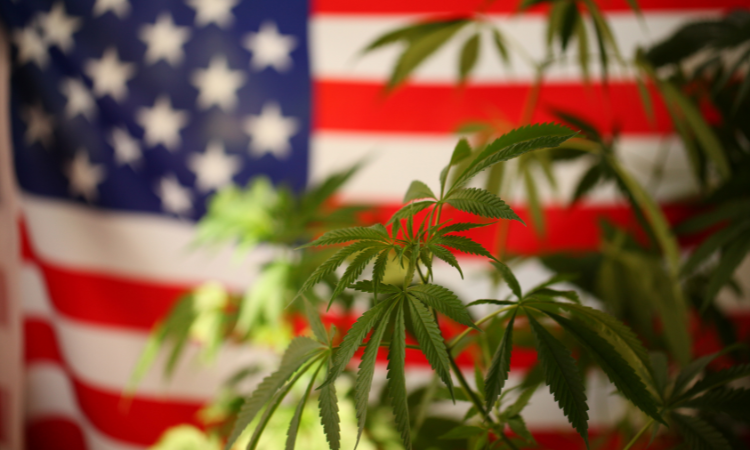The American cannabis industry finds itself at a new crossroads following the results of the 2024 presidential election. With state-legal cannabis sales continuing to set record numbers and more states joining the legalization movement, the election of Donald Trump as president introduces a familiar, yet uncertain, dynamic for the future of cannabis reform.
A Tale of Two Paths
Donald Trump’s victory marks a return to his administration’s previously established approach to cannabis: a hands-off stance at the state level, coupled with maintaining federal prohibition. During his first term, this “selective federalism” allowed the cannabis industry to thrive in states where it was legalized, yet frustrated advocates who hoped for meaningful federal reform. While the re-election of Trump provides some continuity for the cannabis landscape, the path forward remains clouded by questions about whether the federal government will embrace reform or maintain the status quo.
Former Vice President Kamala Harris, Trump’s opponent in the election, had positioned herself as an advocate for federal cannabis reform. Her support of the Marijuana Opportunity Reinvestment and Expungement (MORE) Act was seen as a step toward decriminalization and expunging prior cannabis-related convictions. However, her prosecutorial record as California’s Attorney General cast doubts on the sincerity of her support for reform. Trump’s victory leaves Harris’s reform agenda unrealized, and the cannabis industry now faces a future where federal change may take longer than expected.
Banking Reform Remains Critical
One of the cannabis industry’s most pressing challenges is access to banking. Federal restrictions continue to prevent most banks from handling cannabis-related funds, forcing many businesses to operate on a cash-only basis. This creates significant security risks and logistical hurdles for an industry generating billions in revenue.
Under the Trump administration, past attempts to address banking reform, such as the SAFE Banking Act, failed to gain traction despite bipartisan support. Whether Trump’s second term will see progress on this front remains uncertain, as his administration has historically prioritized other issues over cannabis reform. However, pressure from state governments and financial institutions could push banking reform into the spotlight during the next four years.
The State-Federal Divide Persists
Despite federal inaction, state-level cannabis reform shows no signs of slowing down. Red and blue states alike continue to legalize cannabis for medical and recreational use, creating a complex patchwork of regulations that increasingly clashes with federal law. This growing divide places pressure on the federal government to reconcile its outdated prohibition stance with the reality of widespread state legalization.
While Trump has shown little interest in enforcing federal cannabis laws in legal states, the lack of clear federal guidance leaves the industry in limbo. Businesses remain vulnerable to sudden policy shifts, and the absence of federal reform stifles opportunities for growth and interstate commerce.
Following the Money
The economic case for cannabis reform grows stronger by the day. Several states now report cannabis tax revenues surpassing those from alcohol, highlighting the industry’s financial potential. The federal government stands to benefit from legalization through significant tax revenue and job creation, but it remains to be seen whether Trump’s administration will seize this opportunity.
During his previous term, Trump largely avoided addressing cannabis reform, and his campaign offered few clues about his plans for the industry. However, the increasing economic and political significance of cannabis may force his administration to engage with the issue in a more meaningful way during his second term.
Looking Ahead
With Trump back in the White House, the cannabis industry’s future remains a mix of promise and uncertainty. His state-rights approach is likely to continue, allowing states to set their own cannabis policies while leaving federal prohibition intact. This approach provides stability for existing state-legal markets but does little to address the broader challenges facing the industry, such as banking access and the federal-state conflict.
As the American cannabis experiment evolves, one thing is clear: the industry has moved far beyond its counter-culture roots and into the mainstream. Whether through incremental reforms or eventual federal action, the cannabis industry will continue to grow, driven by consumer demand and economic incentives. For now, the question remains whether the federal government under Trump will lead, follow, or simply stay out of the way.



